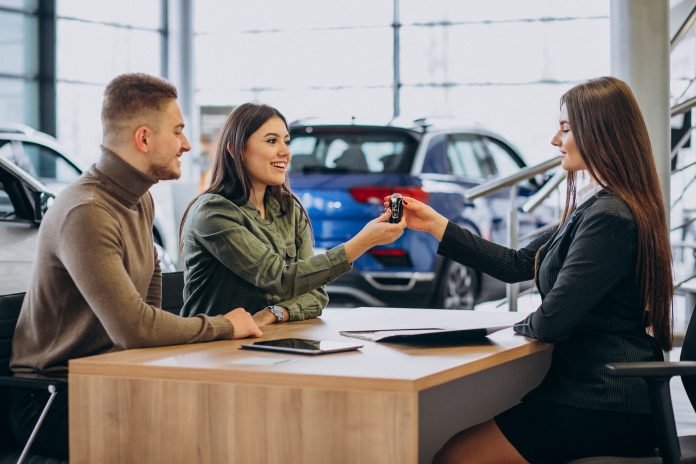Automotive retailers have seen a massive upheaval in recent years. Between the effects of the COVID-19 pandemic, inflationary concerns, higher borrowing costs, and general economic uncertainty, the landscape for dealers has profoundly shifted. Not only has buyer behavior changed, but so have consumer preferences and expectations. It’s all the result of an evolving economic climate.
For a dealership to remain competitive, it must recognize and adapt to the changing marketplace. Keep reading to learn more.
Impacts on car pricing
Undoubtedly, the most significant impact has been on car prices. Inventory shortages stemming from supply chain turmoil and the spillover effects have led to major price inflation. KBB reports that the average new car sold for $48,334 last month. That compares to $38,948 in December 2019.
Demand was further taxed as buyers emerged from lockdown eager to make big-ticket purchases. Low interest rates at the time also incentivized buyers. And while the supply chain picture is brightening, it’s dimmed by higher interest rates. At the same time, inflationary pressures across all household spending have made car shoppers more cautious and value-focused.
The need for messaging value
In today’s market, this no longer means race-to-the-bottom offers. Instead, dealers should promote transparent pricing, including “no-haggle” policies.
In response to this economic uncertainty, dealers need to focus on a value-based approach with assurances of pricing integrity. A shopper wants to be confident that they’re getting a competitive deal. Highlighting bundled offerings (with accessories, a service package, or extra warranty coverage) can also heighten the appeal for buyers concentrated on value.
Recognizing vehicle preferences
While SUVs and light trucks remain popular, dealers need to realize that some buyers are gravitating to smaller, more economical vehicles. This is one way of offsetting higher retail prices and increased borrowing costs. With this in mind, dealers need to work on an inventory mix with adequate options for shoppers concerned about every dollar.
Flexible and individualized buying experiences
Car shoppers today want a flexible buying experience that can accommodate preferences for online or in-store purchases (or a combination of both). The pandemic required an almost complete migration to digital channels for car research, shopping, and buying. So, now in a post-pandemic era, buyers expect a seamless integration between online activity and showroom interactions. Virtual vehicle tours, home test drives, and online transactions with e-contracts and remote signing being part of these modern fundamentals.
Taking a consultative sales approach
A volatile economy means buyers spend more time researching and deliberating before pulling the trigger. Adopting a consultative sales approach is the best way to accommodate an expanded sales cycle. Providing personalized information and guiding customers through the car-buying path is well-suited for shoppers looking to take their time. This investment in customer relationships is essential throughout the prolonged decision-making process. Going for a quick close will turn off buyers and make them go elsewhere.
Customer retention steps
Customer retention initiatives have become even more crucial. Adaptive dealers need to reach buyers with surveys, maintenance reminders, loyalty discounts, and special offers to foster satisfaction and build brand identity. These efforts encourage repeat purchases, services, visits, and referrals—all supporting future revenue.
Opportunities amidst the challenges
Today’s challenging selling environment can create opportunities for innovation. This requires dealers to make strategic investments and modify their business models to meet ever-evolving customer expectations. But, when properly implemented, these changes can strengthen your company’s competitive positioning. The key element is thinking about thriving, not just surviving. This approach will put your dealership in the best position when more stable economic conditions return.
Final thoughts
Dealers and the auto industry as a whole have adapted to the disruptions of the past few years. The car business won’t be returning to the old days. Now’s the time for dealerships to reinvent themselves for this new reality while finding success during economic uncertainty.



